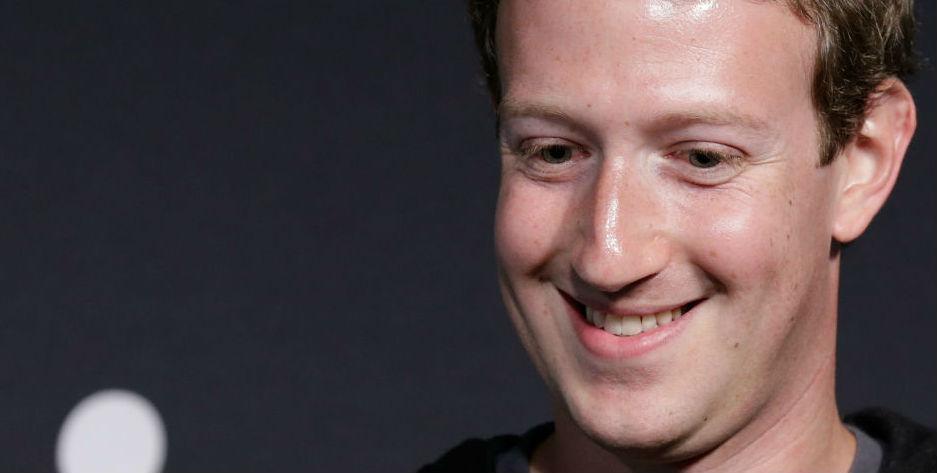Facebook and fake news. Is Zuckerberg right to play down the problem?
The social media giant’s boss says that it's a ‘pretty crazy idea’ that fake news on Facebook could have influenced the US election. But pretty crazy ideas are very much in fashion right now

Your support helps us to tell the story
From reproductive rights to climate change to Big Tech, The Independent is on the ground when the story is developing. Whether it's investigating the financials of Elon Musk's pro-Trump PAC or producing our latest documentary, 'The A Word', which shines a light on the American women fighting for reproductive rights, we know how important it is to parse out the facts from the messaging.
At such a critical moment in US history, we need reporters on the ground. Your donation allows us to keep sending journalists to speak to both sides of the story.
The Independent is trusted by Americans across the entire political spectrum. And unlike many other quality news outlets, we choose not to lock Americans out of our reporting and analysis with paywalls. We believe quality journalism should be available to everyone, paid for by those who can afford it.
Your support makes all the difference.“The idea that fake news on Facebook influenced the election in any way is a pretty crazy idea,” said Facebook founder Mark Zuckerberg at a technology conference.
Well, the idea of electing Donald Trump is a pretty crazy idea too, but it still happened. Ditto Britain flouncing out of the EU.
But does Mr Zuckerberg have a point?
Facebook has become, for a growing number of people, the primary way of consuming news. The site’s feed is designed to show you what its algorithms decide you are most likely to be interested in but critics argue that this creates a little bubble in which users only see content that reinforces their world view as opposed to challenging it once in a while.
If that world view is influenced by false stories, if they rile people up, it could be dangerous, up to and including having a malign influence on elections, up to and including leading to the election of someone like Donald Trump.
The counter argument to that is that it was ever thus. People’s media choices were being informed by their political leanings long before Facebook was conceived.
As for untruths? It might be worth your looking at Media Matters for America. There are plenty of untruths to be found on established, partisan, media outlets and it does not take terribly long to find them if you want to play at being your own fact-checker.
That said, Mr Zuckerberg is being disingenuous when he says “it’s a crazy idea” that fake news picked up on Facebook might have influenced the election. It implies that he doesn’t consume as much of his own product as he should.
If he did he might have encountered some of the memes portraying Facebook as the Darth Vader of the internet world that were popular not so long ago. Facebook doesn’t have clean hands when it comes to the use of its users' data, but some of the stories about its plans that did the rounds made all sorts of outlandish claims that were ultimately proven to be utterly bonkers.
The trouble is, people believed them. And they acted on them. I remember many of my friends pointlessly posting that their photos were their own personal copyright and that Facebook shouldn’t make use of them under any circumstances. This was in response to one of the fake stories that went around. The company has, on occasion, had to publicly respond to some of them. I'm thinking of the ones that urged users to check their settings and change them to protect themselves against one of its dastardly alleged plots that existed only in someone's fevered imagination.
What the above proves is that fake news can have a real effect and that it can influence perceptions – negatively towards Facebook for example – and people's behaviour. The network's algorithms replaced human editors in the wake of accusations that they had a liberal bias. We are living in a post-truth society and it is unfair to pin the blame on Facebook for that. It is a sad fact that media outlets were peddling fake news before the social network became the dominant medium for some people's consumption of news. People were creating their own ideological bubbles long before its algorithms did it for them.
That said, Facebook’s power does place a burden of responsibility on it.
If Mr Zuckerberg were to come down off his pedestal and spend some time in the swamp that led to President-elect Donald Trump, as I have done, he’d soon realise that his statement reveals a worrying blasé attitude and a disturbing naivety about the way the world really works.
The Facebook founder has made great play of his social conscience. It wouldn’t hurt for him to extend this to his business in this case. He might start by hiring some human fact-checkers to assist the algorithms, the better to nip fake news in the bud.
Join our commenting forum
Join thought-provoking conversations, follow other Independent readers and see their replies
Comments